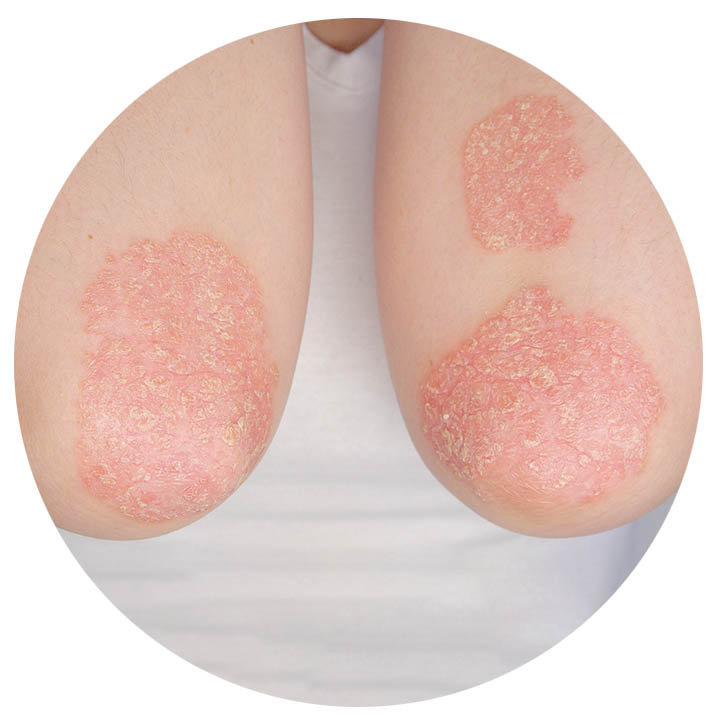
Psoriasis is a chronic, non-contagious skin disease of scaling and inflammation that affects about 2 percent of the US population, or as many as 7.5 million Americans. Psoriasis most often appears on the scalp, elbows, knees, and torso but can develop anywhere. Up to 30% of people with psoriasis will develop psoriatic arthritis, or painful, inflamed, stiff joints.
Impact of Psoriasis on Quality of Life
Individuals with psoriasis may experience significant physical discomfort and some disability. Psoriasis of the hands and feet can prevent individuals from working at certain occupations. Many people with psoriasis feel self-conscious about their appearance and have a poor self-image. The psychological distress can lead to significant depression, alcoholism, and social isolation.
Treatment of Psoriasis
There is no cure for psoriasis, but many different treatments, both topical and systemic, can help clear psoriasis.
Topical Therapy
First line treatment for psoriasis.
- Salicylic acid – helps remove scale and is often combined with topical steroids.
- Steroids – reduce inflammation and are effective in controlling mild to moderate psoriasis; potential side effects include thinning of the skin.
- Vitamin D based creams – effective non-steroidal alternatives.
- Retinoid creams – Vitamin A derivatives that work to normalize skin turnover.
- Light Therapy – Sunlight, ultraviolet B (UVB) light, and laser treatment can be helpful in treating psoriasis. These treatments can be inconvenient and can raise the risk of skin cancer. Home UVB light devices can be more convenient for patients.

